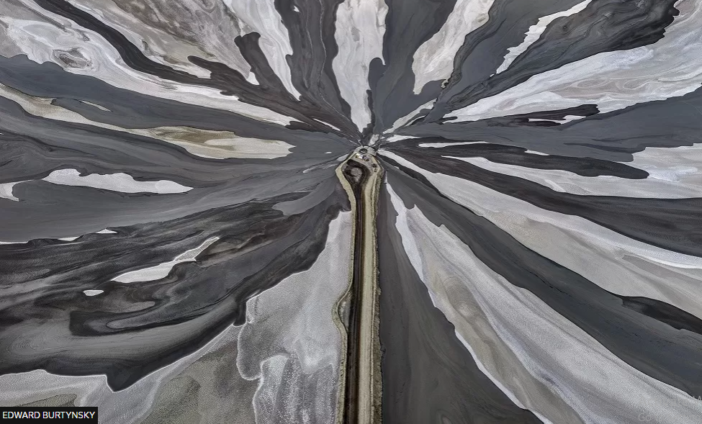
Audio By Carbonatix
For the past 40 years, Edward Burtynsky has photographed the impact of human industry on the planet and for his latest collection, African Studies, he travelled across the continent taking photos from above. He spoke to the BBC's Mary Harper.
In many ways it was China that got me interested in turning my attention to the African continent.
About 20 years ago, I photographed the extraordinary explosion of manufacturing in China, factories and all.
Carbon copies of these factories are now popping up across the continent and the resemblance to what I saw decades ago is uncanny.
As China moves towards becoming a service economy, it is relocating its mega-factory floors to countries like South Africa, embarking on huge infrastructure projects and extracting the continent's resources to fuel its growth.
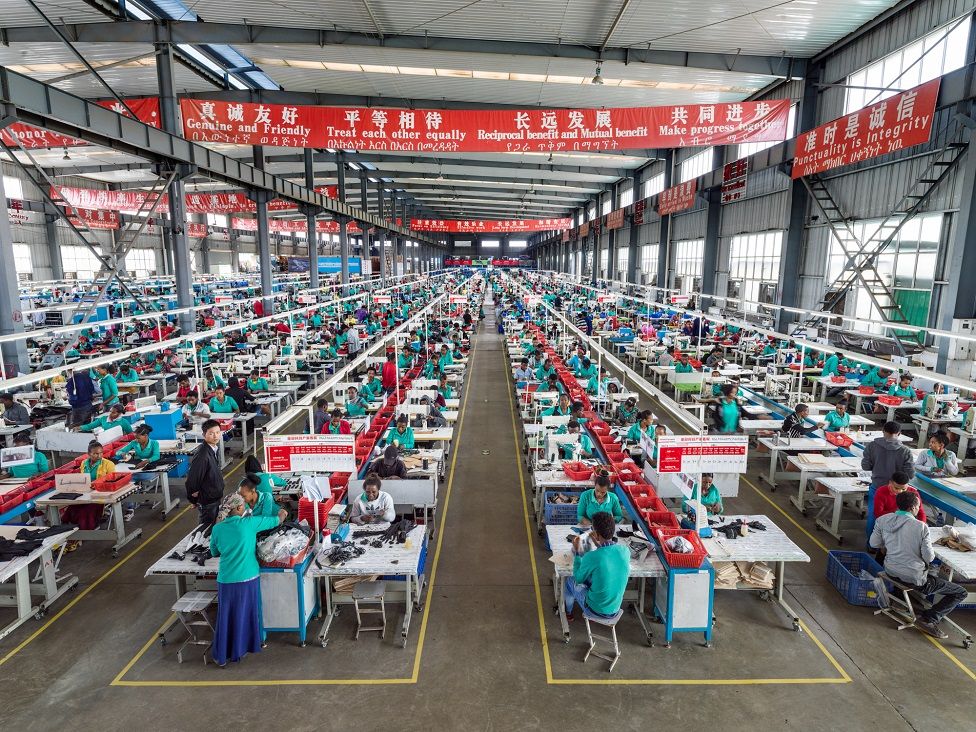
Most of these photos were taken from the sky, from planes, helicopters and drones.
They reveal the design, structure and scale of the marks humans inscribe on the earth, the extraordinary vistas not visible from ground level.
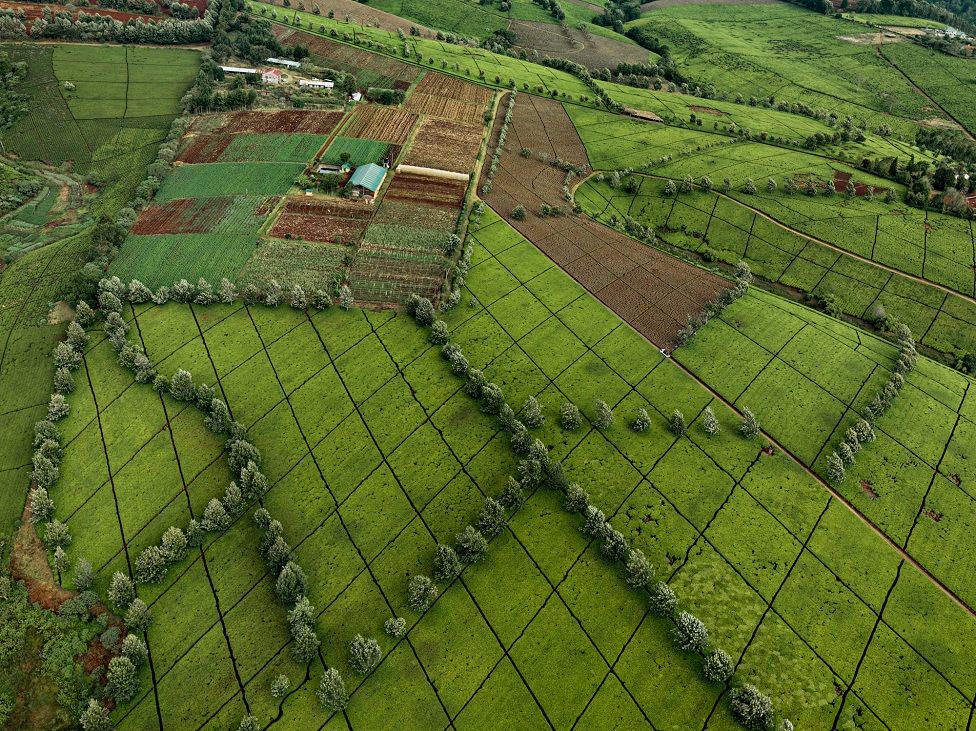
Like the extractive industries, agriculture also throws up abstract images when seen from above.
I wonder if tea pickers and rose growers are aware of the extraordinary geometry and symmetry of the fields they work in.
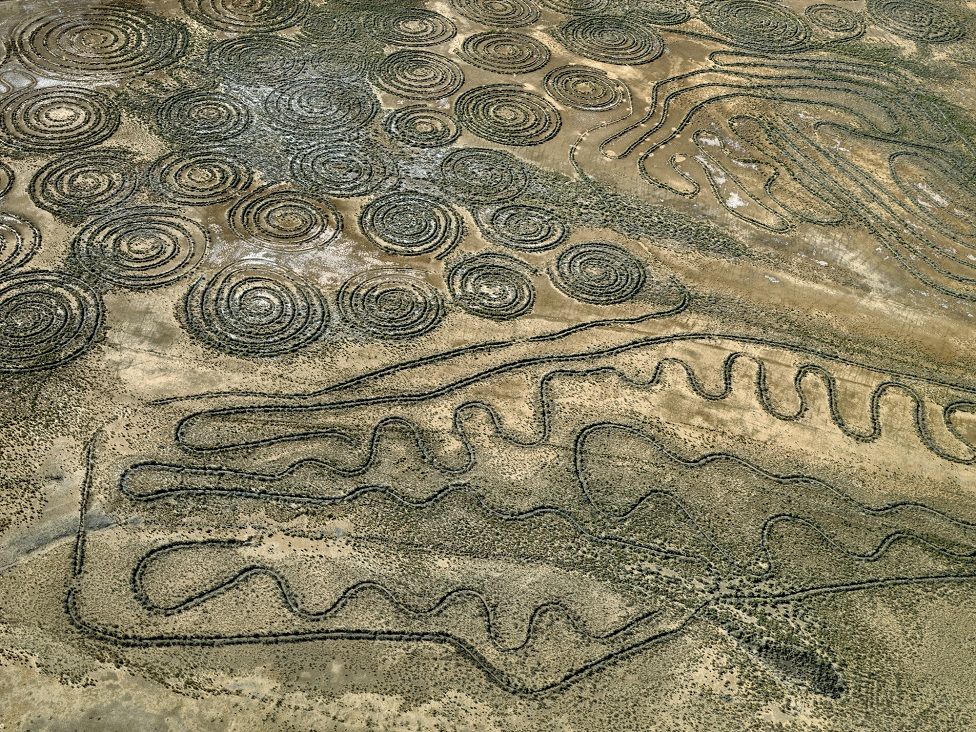
Those who work on the land, whether fertile or parched, sometimes transform its beauty but do not destroy it.
In South Africa, farmers try to hold back desertification by ploughing great ruts in the earth which collect water when it rains, allowing plants and trees to grow in a hostile environment.
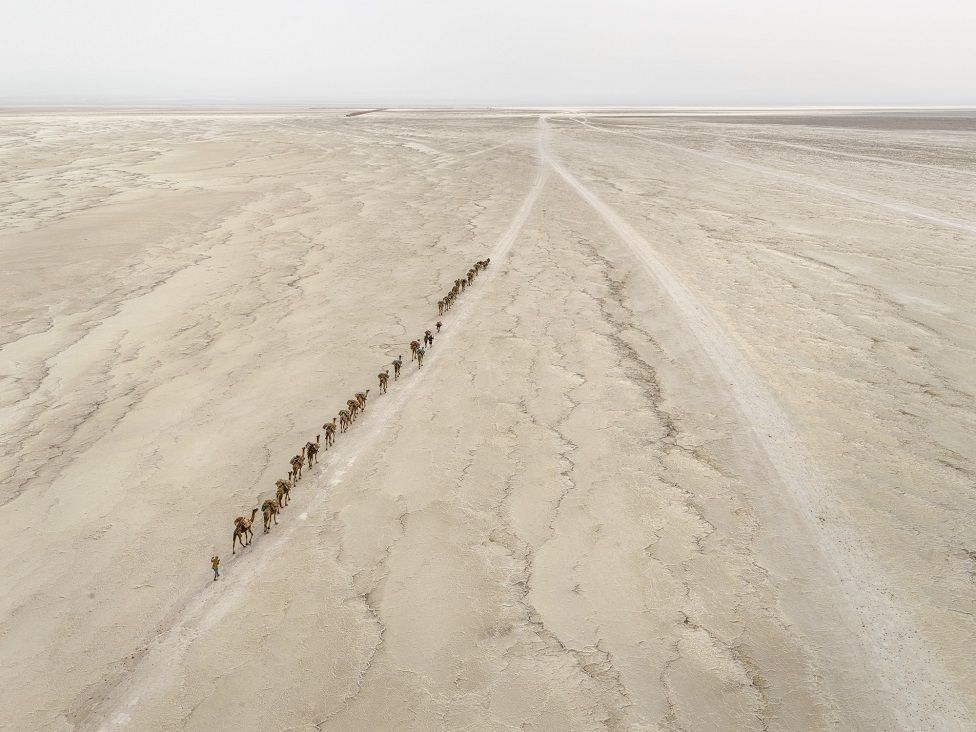
The land across Africa is replete with resources, some extracted with modern technology, others using techniques that are centuries old.
In Ethiopia, it was like stepping back in time as people harvested salt with pickaxes in temperatures of 50C.
Every day the salt is loaded onto camels, the ships of the desert.
We had to give up on our GPS instruments in Danakil. As it is about 125m below sea level the devices became confused, thinking we were operating under the ocean.
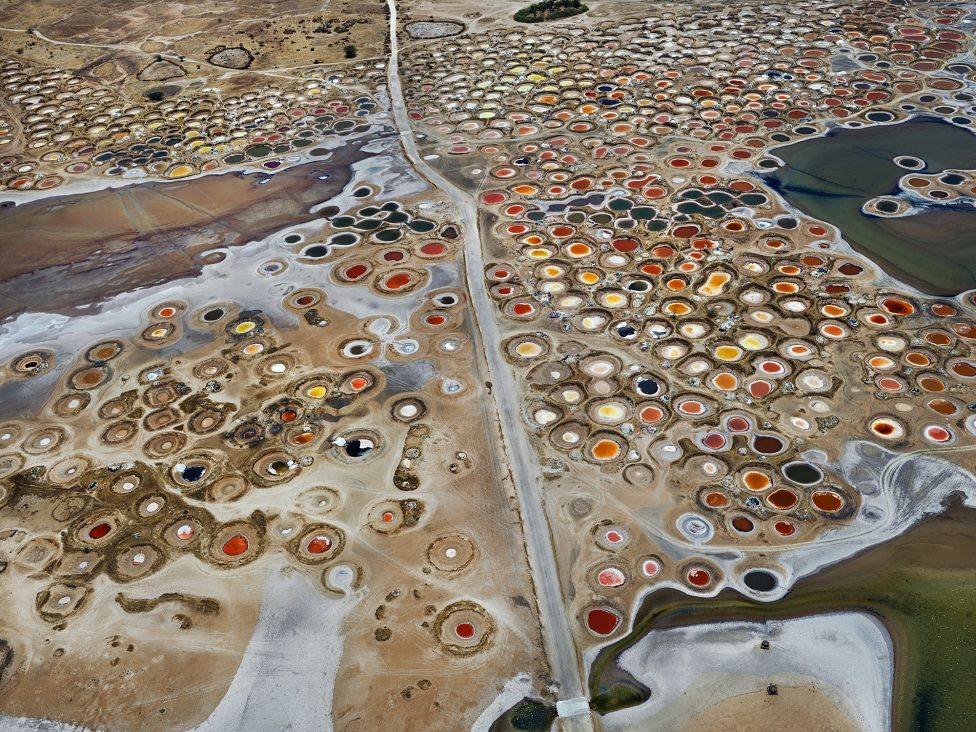
One of the highlights of my journey was a visit to the salt ponds of Senegal, West Africa's largest producers of salt.
Harvesters dig shallow depressions by hand which are then filled with salt water from nearby canals.
Once the water has evaporated, minerals, pigments and various algae combine with reflections of the sky to create a spectacle for the eye. The intricate, organic structures become almost hypnotic.
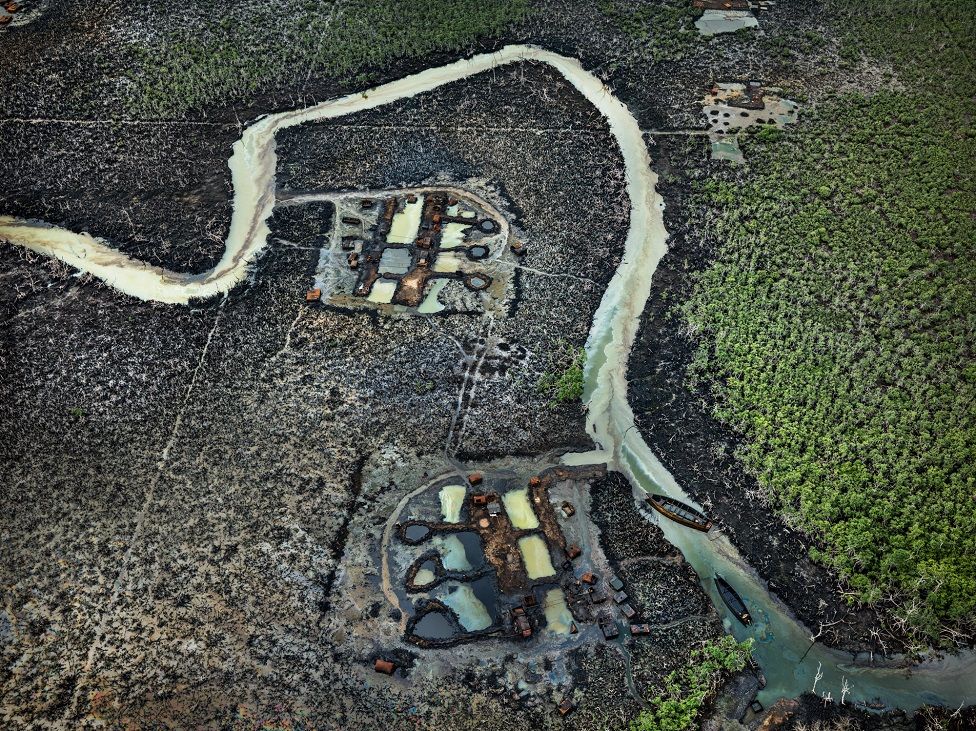
The stark result of corporate profiteering, poverty, ingenuity and ruthless piracy in the oil-rich Niger Delta easily ranks as one of the most profoundly disturbing, devastated landscapes ever created by humankind.
Coming to grips with the experience of that landscape was a major turning point in my understanding about the degree to which we as a species are capable of defiling our planet.
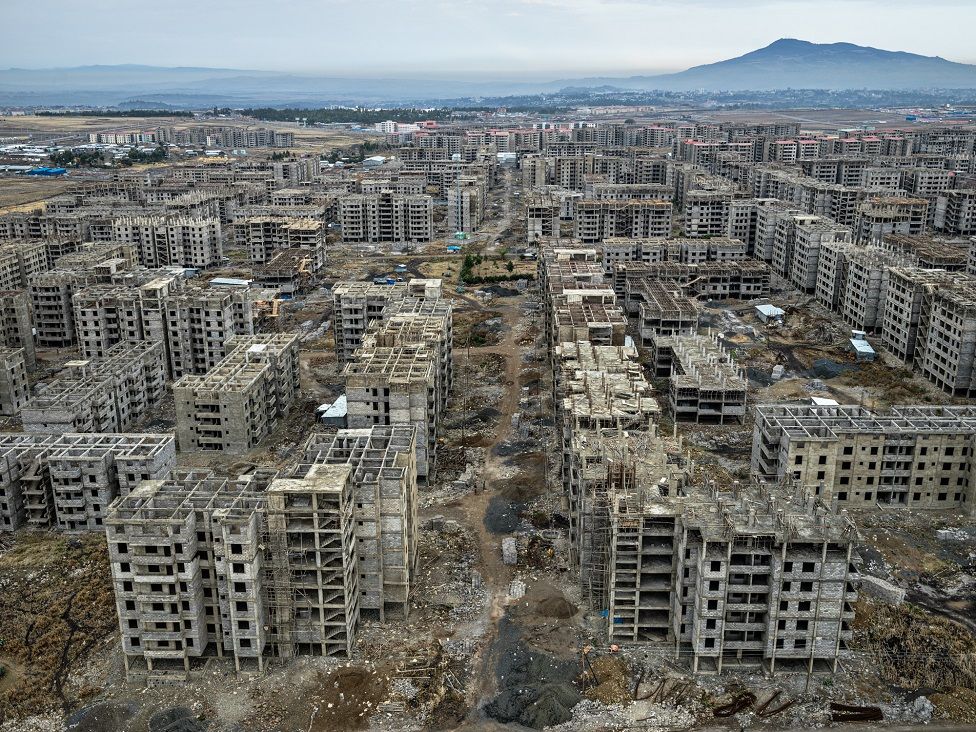
A striking difference between Chinese and African factories is that in Africa the essential workforce is from the local towns and villages while most often the floor bosses and site managers are Chinese.
With populations drifting to find work in the cities, China has embarked on a fever of construction often encroaching on precious rural land.
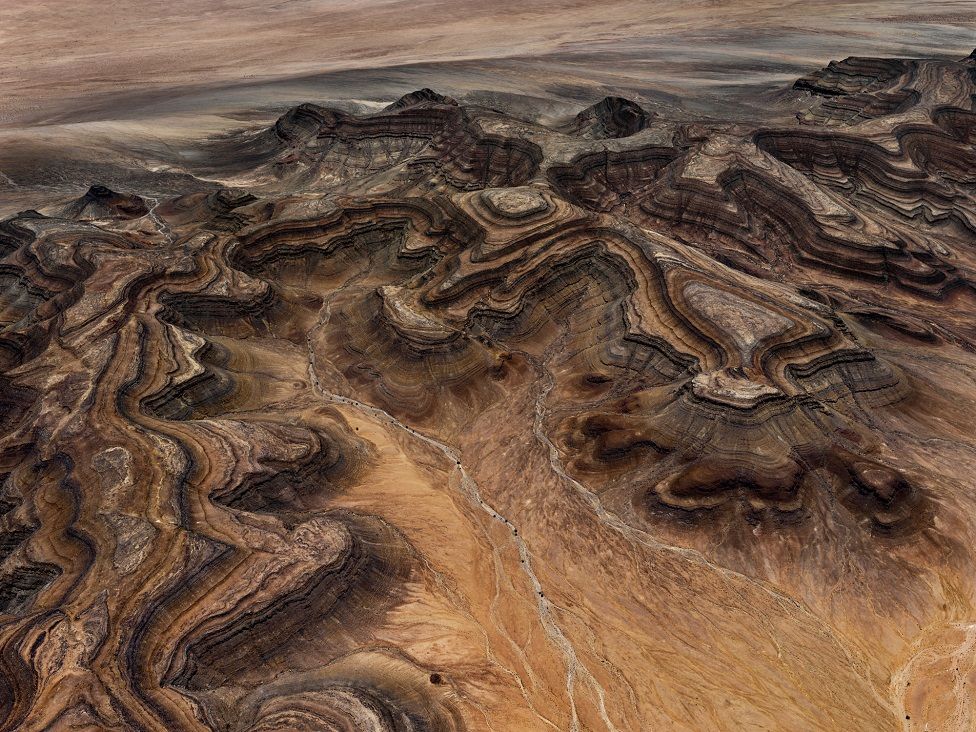
The Tsaus Mountains of the Sperrgebiet in Namibia are some of the most hauntingly beautiful land formations I have ever photographed.
Their topographic structures and richness of colour seemed to transcend the idea of landscape altogether and enter into a purely abstract realm.
Homo sapiens began migrating out of Africa some 200,000 years ago. Fast forward to the 21st Century and we have come full circle, returning to one of the last places on earth to be swept into the unrelenting machinations of the human industrial complex.
The African continent is a fragile, final frontier.
All pictures are subject to copyright.
Latest Stories
-
Adom FM’s ‘Strictly Highlife’ lights up La Palm with rhythm and nostalgia in unforgettable experience
2 hours -
Ghana is rising again – Mahama declares
6 hours -
Firefighters subdue blaze at Accra’s Tudu, officials warn of busy fire season ahead
6 hours -
Luv FM’s Family Party In The Park ends in grand style at Rattray park
6 hours -
Mahama targets digital schools, universal healthcare, and food self-sufficiency in 2026
6 hours -
Ghana’s global image boosted by our world-acclaimed reset agenda – Mahama
7 hours -
Full text: Mahama’s New Year message to the nation
7 hours -
The foundation is laid; now we accelerate and expand in 2026 – Mahama
7 hours -
There is no NPP, CPP nor NDC Ghana, only one Ghana – Mahama
7 hours -
Eduwatch praises education financing gains but warns delays, teacher gaps could derail reforms
7 hours -
Kusaal Wikimedians take local language online in 14-day digital campaign
8 hours -
Stop interfering in each other’s roles – Bole-Bamboi MP appeals to traditional rulers for peace
8 hours -
Playback: President Mahama addresses the nation in New Year message
9 hours -
Industrial and Commercial Workers’ Union call for strong work ethics, economic participation in 2026 new year message
11 hours -
Crossover Joy: Churches in Ghana welcome 2026 with fire and faith
11 hours

